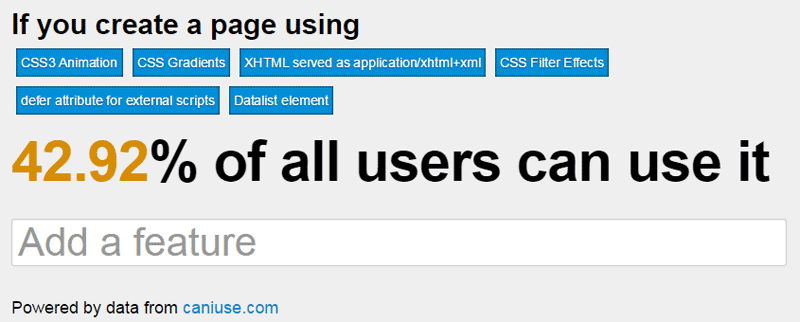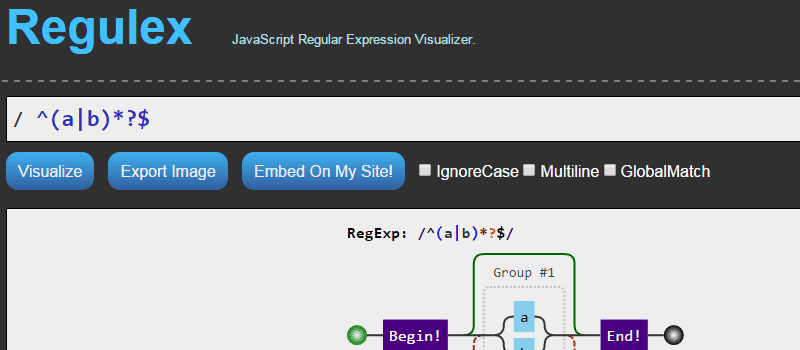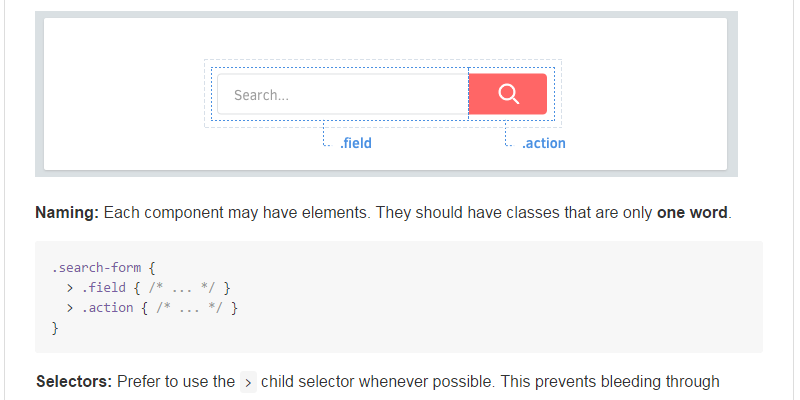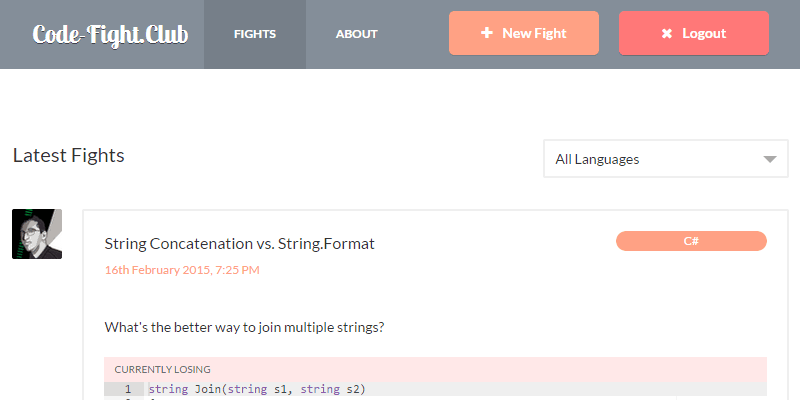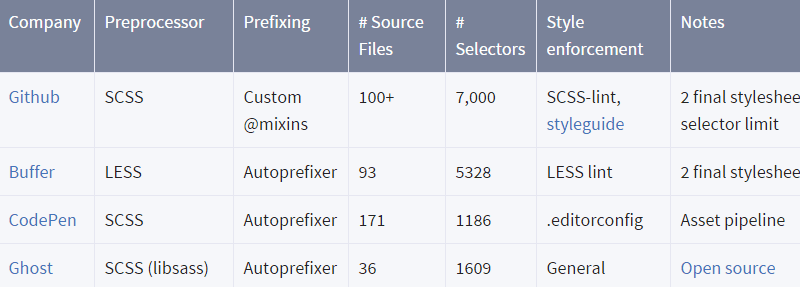这里和搜集了前端开发者必备的20个在线工具和指南。新的一周,你需要计划学习新的东西或者能够提升你的能力。在平常的搜索中,我碰到过很多实用的工具,应用程序和参考文档,我把它们整理在下面这个列表。相信你会在这个列表中发现对你很有用的资料。
1. I want to use
Based on data and features listed on Can I use, this app gives you the ability to select a number of front-end development features and get a percentage readout of the number of users worldwide that will see the features you choose.
2. Regulex
A client-side, regular expression visualizer with a precise error indicator, should you have a syntax error in your expression. Also offers an option to embed the output anywhere, using an iframe.
3. Mastering the :nth-child
A one-page website to help you grasp how to use the various useful but often complex nth-child based selector combinations.
4. HTML5 Video Events and API
“This page demonstrates the new HTML5 video element, its media API, and the media events. Play, pause, and seek in the entire video, change the volume, mute, change the playback rate (including going into negative values). See the effect on the video and on the underlying events and properties.”
5. Excess XSS
This is probably a topic that all developers should be familiar with, and this might be a great place to start. It’s a comprehensive tutorial on cross-site scripting, a description of potential types of attacks, along with solutions for preventing them.
6. RSCSS
Meaning “Reasonable Standard for CSS Stylesheet Structure”, a work in progress to document some tips and techniques for writing Sass/CSS for very large projects.
7. CodeFightClub
“A project built by Andrew Hathaway with the aim to help fellow developers learn how to write their code in the nicest, most efficient and preferred way they can. To decide which code is the most preferred way, users can comment and vote against a fight for their favourite contender.” The site is divided into categories by programming languages, and there doesn’t seem to be a lot here yet, but you can help by adding to it and starting some “code fights”.
8. Sass Guidelines
From the Sass master himself, Hugo Giraudel, “an opinionated styleguide for writing sane, maintainable and scalable Sass.” The guide has already been translated into 6 other languages.
9. Flexbugs
“A community-curated list of flexbox issues and cross-browser workarounds for them. The goal is that if you’re building a website using flexbox and something isn’t working as you’d expect, you can find the solution here.” Definitely a must-bookmark for those starting to build new layouts with Flexbox.
10. A Front End Engineer’s Manifesto
Nothing too in-depth, just a simple set of reminders of stuff that all front-end developers should consider incorporating into their development process and workflow.
11. ECMAScript 6 equivalents in ES5
A nice reference for converting ES6 features to ES5-compatible code. Very useful considering ES5 has great support but ES6 doesn’t.
12. Flexbox Adventures
An in-depth, practical look at Flexbox, from Aussie-based developer Chris Wright. He’s also posted Using Flexbox Today, which tries to help you make the move to Flexbox in a logical, pragmatic manner.
13. Get BEM
A comprehensive site promoting and educating in the use of the popular BEM CSS methodology.
14. Sass Compatibility
“Reporting incompatibilities between different Sass engines.”
15. HTMLelement.info
A neat, logical, easy to use guide to get information on different HTML elements from the spec.
16. JSLint Error Explanations
If you’re like me, you probably follow a lot of JavaScript best practices, but maybe don’t understand all the reasons behind those techniques. This site aims to demystify the errors and warnings you find in the popular linting tools JSLint, JSHint, and ESLint.
17. Animations — Web Fundamentals
There’s lots of good info in Google’s Web Fundamentals documentation, but this one stands out for front-end devs in particular because of the importance of applying some good practices when animating UI elements.
18. Favicon Cheat Sheet
“A painfully obsessive cheat sheet to favicon sizes/types.” Compiled from a number of different popular articles that discussed the ins and outs of favicons across desktop and mobile.
19. The CSS at…
If you want your fill of CSS styleguides from some of the big players, Chris Coyier has put together a table with info and links to the various posts that were sort of trending for a couple of months last year. I’m sure he’ll continue to update this as others go public with their CSS methodologies and practices.
20. Dash
Finally, a native Mac or iOS app that is “an API Documentation Browser and Code Snippet Manager. Dash stores snippets of code and instantly searches offline documentation sets for 150+ APIs.” This one’s great for pretty much any kind of developer.
您可能感兴趣的相关文章
 HTMLの未来:進化とトレンドMay 13, 2025 am 12:01 AM
HTMLの未来:進化とトレンドMay 13, 2025 am 12:01 AMHTMLの未来は、よりセマンティック、機能的、モジュール式方向に発展します。 1)セマンティック化により、タグがコンテンツをより明確に説明し、SEOとバリアのないアクセスを改善します。 2)機能化は、ユーザーのニーズを満たすために新しい要素と属性を導入します。 3)モジュール性は、コンポーネントの開発をサポートし、コードの再利用性を改善します。
 Web開発にとってHTML属性が重要なのはなぜですか?May 12, 2025 am 12:01 AM
Web開発にとってHTML属性が重要なのはなぜですか?May 12, 2025 am 12:01 AMhtmlattributesarecrucialinwebdevevermentmentmentmentmentmentmentmention behavior、like、andfunctionality.theyenhance -interactivity、accessibility、andseo.forexample、thesrcattribute intagsimpactsseo
 Alt属性の目的は何ですか?なぜそれが重要なのですか?May 11, 2025 am 12:01 AM
Alt属性の目的は何ですか?なぜそれが重要なのですか?May 11, 2025 am 12:01 AMALT属性は、HTMLのタグの重要な部分であり、画像の代替テキストを提供するために使用されます。 1.画像をロードできない場合、ALT属性のテキストが表示され、ユーザーエクスペリエンスが向上します。 2。スクリーンリーダーは、ALT属性を使用して、視覚障害のあるユーザーが写真の内容を理解するのに役立ちます。 3. ALT属性のEnginesインデックステキストを検索して、WebページのSEOランキングを改善します。
 HTML、CSS、およびJavaScript:例と実用的なアプリケーションMay 09, 2025 am 12:01 AM
HTML、CSS、およびJavaScript:例と実用的なアプリケーションMay 09, 2025 am 12:01 AMWeb開発におけるHTML、CSS、およびJavaScriptの役割は次のとおりです。1。HTMLは、Webページ構造の構築に使用されます。 2。CSSは、Webページの外観を美化するために使用されます。 3. JavaScriptは、動的な相互作用を実現するために使用されます。タグ、スタイル、スクリプトを通じて、これら3つは最新のWebページのコア関数を構築します。
 Lang属性をタグにどのように設定しますか?なぜこれが重要なのですか?May 08, 2025 am 12:03 AM
Lang属性をタグにどのように設定しますか?なぜこれが重要なのですか?May 08, 2025 am 12:03 AMタグのLang属性を設定することは、WebアクセシビリティとSEOを最適化する重要なステップです。 1)ラング属性をタグに設定します。 2)多言語コンテンツでは、ようなさまざまな言語パーツのLang属性を設定します。 3)「EN」、「FR」、「ZH」などのISO639-1標準に準拠する言語コードを使用します。Lang属性を正しく設定すると、Webページと検索エンジンランキングのアクセシビリティが向上します。
 HTML属性の目的は何ですか?May 07, 2025 am 12:01 AM
HTML属性の目的は何ですか?May 07, 2025 am 12:01 AMhtmlattributeSareSientionalentionalentionalentionalentiallyance'functionalityandappearance.theyaddinformationtodefinebehavior、light、and interaction、makewebsitesteractive、responsive、andviseallyappaleal.attributeslikesrc、href、class、型、およびdoadabledransform
 HTMLでリストを作成するにはどうすればよいですか?May 06, 2025 am 12:01 AM
HTMLでリストを作成するにはどうすればよいですか?May 06, 2025 am 12:01 AMtoreatealistinhtml、useforunorderedlistsandfororderedlists:1)forunorderedlists、wrapitemsinanduseforeachitem、renderingasabulletedlist.2)
 HTMLアクション:Webサイト構造の例May 05, 2025 am 12:03 AM
HTMLアクション:Webサイト構造の例May 05, 2025 am 12:03 AMHTMLは、明確な構造のWebサイトを構築するために使用されます。 1)Webサイト構造などのタグを使用し、定義します。 2)例は、ブログとeコマースのウェブサイトの構造を示しています。 3)誤ったラベルネスティングなどの一般的な間違いを避けてください。 4)HTTP要求を削減し、セマンティックタグを使用してパフォーマンスを最適化します。


ホットAIツール

Undresser.AI Undress
リアルなヌード写真を作成する AI 搭載アプリ

AI Clothes Remover
写真から衣服を削除するオンライン AI ツール。

Undress AI Tool
脱衣画像を無料で

Clothoff.io
AI衣類リムーバー

Video Face Swap
完全無料の AI 顔交換ツールを使用して、あらゆるビデオの顔を簡単に交換できます。

人気の記事

ホットツール

SecLists
SecLists は、セキュリティ テスターの究極の相棒です。これは、セキュリティ評価中に頻繁に使用されるさまざまな種類のリストを 1 か所にまとめたものです。 SecLists は、セキュリティ テスターが必要とする可能性のあるすべてのリストを便利に提供することで、セキュリティ テストをより効率的かつ生産的にするのに役立ちます。リストの種類には、ユーザー名、パスワード、URL、ファジング ペイロード、機密データ パターン、Web シェルなどが含まれます。テスターはこのリポジトリを新しいテスト マシンにプルするだけで、必要なあらゆる種類のリストにアクセスできるようになります。

DVWA
Damn Vulnerable Web App (DVWA) は、非常に脆弱な PHP/MySQL Web アプリケーションです。その主な目的は、セキュリティ専門家が法的環境でスキルとツールをテストするのに役立ち、Web 開発者が Web アプリケーションを保護するプロセスをより深く理解できるようにし、教師/生徒が教室環境で Web アプリケーションを教え/学習できるようにすることです。安全。 DVWA の目標は、シンプルでわかりやすいインターフェイスを通じて、さまざまな難易度で最も一般的な Web 脆弱性のいくつかを実践することです。このソフトウェアは、

ドリームウィーバー CS6
ビジュアル Web 開発ツール

AtomエディタMac版ダウンロード
最も人気のあるオープンソースエディター

Dreamweaver Mac版
ビジュアル Web 開発ツール





